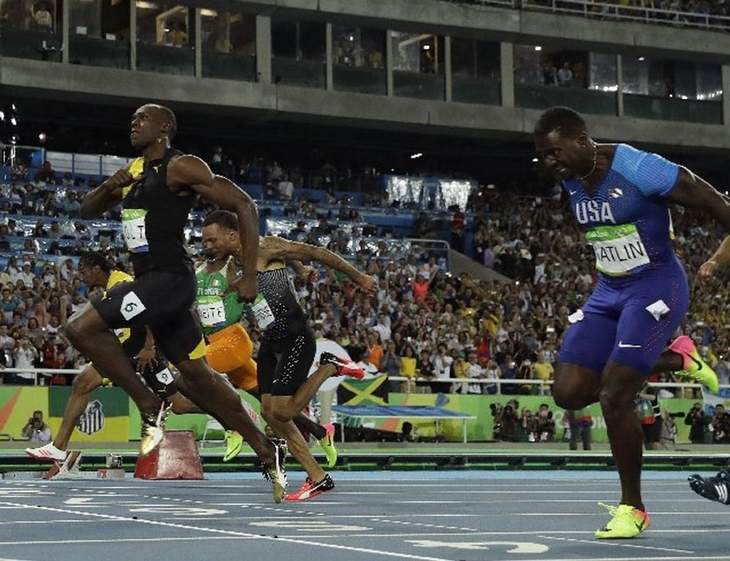media_artricles :: 2017
Value of preparation
Fazeer Mohammed :: Trinidad Express :: 30.07.2017How much preparation is enough?
Obviously the answer to that question hinges on a number of factors, not least the nature and degree of the contest that is either just around the corner or several years away. In any event, for those who have excelled in their particular disciplines down the years, no amount of preparation is ever enough for there is always a particular element that can be improved in the quest for that extra edge, which could make all the difference.
While Dennis Lawrence has been refreshingly candid about his team's performances, not least their second half showing against Ecuador in Guayaquil last Tuesday, the national coach and former international central defender will be the first to admit that he has been on a perpetual race against time since replacing the short-lived Belgian Tom Saintfiet in February for the final eight games of a World Cup football qualifying campaign that was already going off course following the first two games under Stephen Hart at the end of last year.
Ideally any coach would want to start moulding a squad with a view to World Cup qualification as soon as the previous tournament is over or, as has been our experience with one notable exception, when the effort to get to the big stage ends with elimination.
Keshorn Walcott would obviously have trained his sights on Rio de Janeiro in 2016 not long after his shock gold medal in the men's javelin at the 2012 Olympics in London. Yes, there would be World Championships along the way and other significant assignments to be factored into the training regime. Yet even with the return to London next month for the "Worlds," no doubt to be dominated by Usain Bolt's farewell, it would be very surprising if the Toco athlete doesn't have his schedule of training and competition measured to peak for Tokyo 2020 when, if all goes well, he will be pursuing a third Olympic medal.
Bolt's phenomenal success and magnetic personality mean that, as if often the case, the dedication and intensity of his preparation are often overlooked amid the widespread exultation at what is loosely termed as his exceptional natural talent. That may be so, but it is fair to say that the Jamaican superstar would have been just another occasional bright spark save for a work ethic that is in stark contrast to the general perception of his fellow countrymen and Caribbean people in general by the rest of the world.
It is that sort of work ethic which the West Indies cricketers need to show in England if they are not to be branded as the worst Test team from this region to visit the birthplace of the game by the time the three-Test series concludes on September 11 (assuming that last match goes all five days) at Lord's.
If they haven't been putting in the work prior to leaving the Caribbean last week then it's debatable whether anything done before the first pink ball is bowled in England's inaugural day/night Test in Birmingham on August 17 will make any meaningful difference.
Still, there are a possible nine days of cricket – unprecedented in the context of the contemporary international game – that will at least give Jason Holder's side the sort of match preparation which they would not normally enjoy ahead of any other foreign assignment.
It all begins tomorrow with the start of a three-day match against Essex at Chelmsford, followed by similar fixtures against two other county teams in Kent and Derbyshire. Whatever the quality of those sides, and there has been a tendency for many years by the hosts to rest their key players for these tour matches, they represent an opportunity for players with very little high-level cricket experience in English conditions to get attuned to the particular requirements there.
There is no need for any deep analytical perspectives to appreciate that, for batsmen, coping with the moving ball – either through the air or off the seam – represents a major challenge. For fast bowlers like Shannon Gabriel, who incidentally made his Test debut at Lord's on the West Indies' last England tour in 2012 and broke down during the second innings of that match, adjusting line and length in keeping with greener pitches and not getting carried away with greater pace and bounce than they have been getting on lifeless Caribbean surfaces is as much of a task as working out how to get rid of Joe Root and company.
This team is being given less of a chance than on the previous four England tours where 11 of 13 Tests were lost, most by wide margins. What they do with nine days of cricket over the next fortnight is likely to determine if the series will be anything other than the forecasted no-contest.
Become a subscriber to the Trinidad Express Newspapers for access to all our articles via our e-paper.

Enlarge Image
TRACK LEGEND: Jamaica's Usain Bolt, left, crosses the line to win gold ahead of American Justin Gatlin, right, and Canada's Andre De Grasse, centre, in the men's 100 metres final during the 2016 Summer Olympics at the Olympic stadium in Rio de Janeiro, Brazil, last August 14. --Photo: AP

Close Window